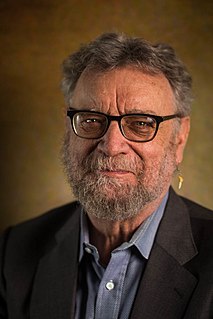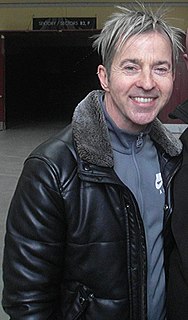A Quote by Salman Rushdie
I do not read the works of Salman Rushdie, I write them. By the time I have finished writing them all I can think of is never reading them again. It's so deep, your involvement with a book, that once it's finished, then you are really done with it.
Related Quotes
If you invent two or three people and turn them loose in your manuscript, something is bound to happen to them -- you can't help it; and then it will take you the rest of the book to get them out of the natural consequences of that occurrence, and so first thing you know, there's your book all finished up and never cost you an idea.
You see? Characters in books do not read books. Oh, they snap them shut when somebody enters a room, or fling them aside in disgust at what they fancy is said within, or hide their faces in one which they pretend to peruse while somebody else lectures them on matters they'd rather not confront. But they do not read them. 'Twould be recursive, rendering each book effectively infinite, so that no single one might be finished without reading them all. This is the infallible message of discovering on which side of the page you are on.
I've never been satisfied or even pleased with a film that I've done. I make them, I'm finished, I've never looked at one after. I don't like them because there's a big gap between what you conceive in your mind when you're writing and you don't have to meet the test of reality. You're home, you write and it's funny and beautiful and romantic and dramatic, and then you have to show up on a cold morning, and you don't have enough of this and this goes wrong and you make the wrong choice on something and you screwed up and you can't go back.
Words are alive--when I've found a story that I love, I read it again and again, like playing a favorite song over and over. Reading isn't passive--I enter the story with the characters, breathe their air, feel their frustrations, scream at them to stop when they're about to do something stupid, cry with them, laugh with them. Reading for me, is spending time with a friend. A book is a friend. You can never have too many.
It's rare that you get to read, let alone teach, an arbitrary canon of your choosing in a tight time setting, and I tore through a fairly wide range of Indian writers, some contemporary - like Arundhati Roy and Salman Rushdie - and others older, like R.K. Narayan. And I think what happened at that stage was that I was forced to take a position in my own writing style that was more fixed, as opposed to reading a book at a time and defining myself in opposition to or in awe of it.
I didn't learn how to read and write until pretty late, and it was this very mysterious, incredible thing, like driving, that I didn't get to do. And then I started writing things down on little scraps of paper and I would hide them. I would write the year on them and then I would stuff them in a drawer somewhere. But I didn't start to really read until about eight. I'm dyslexic, so it took a long time.
Once I've properly finished a book, my ideal state of being would be to never think about it again. But with 'Capital,' I felt I'd spent so much time with the characters that they were very, very real, and I definitely had a sense of loss about leaving them behind in a way I've not quite had before.
Master those books you have. Read them thoroughly. Bathe in them until they saturate you. Read and reread them…digest them. Let them go into your very self. Peruse a good book several times and make notes and analyses of it. A student will find that his mental constitution is more affected by one book thoroughly mastered than by twenty books he has merely skimmed. Little learning and much pride comes from hasty reading. Some men are disabled from thinking by their putting meditation away for the sake of much reading. In reading let your motto be ‘much not many.
If you notice phrases, ideas, and anecdotes that closely resemble those that appear elsewhere in my writing, it's not a matter of sloppy editing. I'm repeating myself. I'm reshuffling words in the hope that just once I might say something exactly right. And I'm still wrestling with dilemmas that are not easily resolved or easily dismissed. I run at them again and again because I am not finished with them. Any may never be. Work-in- progress on a life-in-progress is what my writing is about. And some progress in the work is enough to keep it going on.




































